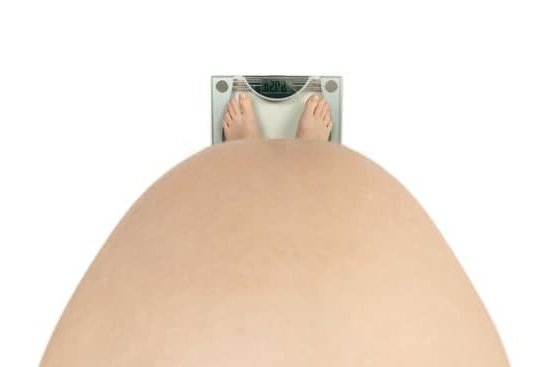Hip Pain In Pregnancy
Pregnancy is a time of both joy and worry. Along with the anticipation of a new life comes all sorts of physical changes and discomforts. Hip pain is one of the most common complaints among pregnant women.
There are several reasons why pregnant women experience hip pain. The hormone relaxin, which is produced in large quantities during pregnancy, causes the ligaments in the body to loosen. This can lead to instability in the pelvic region, which can cause pain in the hip joint. Additionally, the added weight of the baby and the uterus can put stress on the hip joint, leading to pain.
There are a few things that you can do to help relieve hip pain during pregnancy. First, try to maintain a healthy weight. Excess weight can put stress on the hip joint. Second, try to exercise regularly. Exercise can help to strengthen the muscles around the hip joint and can help to reduce pain. Third, wear a support belt. A support belt can help to support the weight of the baby and the uterus, which can reduce stress on the hip joint. Finally, if the pain is severe, talk to your doctor about taking medication to relieve the pain.
If you are experiencing hip pain during pregnancy, be sure to talk to your doctor. He or she can help to diagnose the cause of the pain and can provide you with tips on how to relieve the pain.
Painful Gas Pregnancy
is a condition that is caused by the accumulation of gas in the stomach and intestines. The gas can be so painful that it is mistaken for labor pain. The pain may be accompanied by nausea, vomiting, and diarrhea. In severe cases, the gas may cause the stomach to cramp and the woman to feel faint.
The condition is caused by the same things that cause gas pain in non-pregnant women: eating too fast, eating high-fat foods, drinking carbonated drinks, and smoking. It is also caused by the pressure of the baby’s head on the stomach and intestines.
The best way to relieve the pain is to eat small meals, eat slowly, and avoid high-fat foods and carbonated drinks. If the pain is severe, the woman may need to take medication for the pain.
Ligament Pain During Pregnancy
Pregnancy is an amazing time, but it can also be a time of ligament pain. The ligaments are the bands of tissue that connect bones to each other. They can become stretched and sore during pregnancy as the baby grows.
The most common type of ligament pain during pregnancy is pelvic pain. This pain is felt in the lower part of the abdomen and may be accompanied by a feeling of heaviness in the pelvis. Pelvic pain is often worse during the later stages of pregnancy, when the baby is larger.
Pelvic pain can also be a sign of preterm labor. If you experience any type of pain that concerns you, be sure to contact your healthcare provider.
Other types of ligament pain during pregnancy include back pain and neck pain. Back pain is often caused by the extra weight that the baby adds to the body. Neck pain can be a result of the extra stress that the pregnant body is under.
All of these types of pain can be treated with over-the-counter pain medications, ice packs, and heat pads. Be sure to consult with your healthcare provider before taking any medications.
If you are experiencing ligament pain during pregnancy, be sure to take it easy and rest as much as possible. You may also want to consider using a support belt to help relieve some of the pain. Talk to your healthcare provider about which type of belt is best for you.
Ligament pain during pregnancy can be uncomfortable, but it is usually nothing to worry about. With a little bit of rest and some over-the-counter pain medications, you should be feeling better in no time.
Upper Abdominal Pain Pregnancy First Trimester
The first trimester is an important time for your baby’s development, and it’s also a time when you may start to experience some new and unfamiliar symptoms. Upper abdominal pain is one of those symptoms.
There are a few things that can cause upper abdominal pain during pregnancy. One common cause is round ligament pain. The round ligaments are two long, thin ligaments that run along each side of your uterus. As your uterus grows, the round ligaments stretch. This can cause a sharp, stabbing pain in your upper abdomen.
Another common cause of upper abdominal pain during pregnancy is Gastroesophageal Reflux Disease (GERD). GERD is a condition that causes acid from your stomach to back up into your esophagus. This can cause a burning sensation in your chest or throat, and can also lead to vomiting.
If you are experiencing upper abdominal pain during your pregnancy, it’s important to see your doctor. He or she will be able to determine what is causing the pain and will recommend the best course of treatment.
Jaw Pain Pregnancy
There is no one definitive answer to this question as the experience of jaw pain during pregnancy can vary from woman to woman. However, there are some general things that can be said about jaw pain during pregnancy.
One of the most common explanations for jaw pain during pregnancy is that it is caused by changes in the body’s hormone levels. Pregnancy hormones can cause the tissues in the body to swell, including the tissues in the jaw. This can lead to pain and discomfort in the jaw area.
Another possible explanation for jaw pain during pregnancy is that it is caused by changes in the position of the jaw. As the baby grows, it can put pressure on the jaw, leading to pain and discomfort.
There are a number of things that can be done to help relieve jaw pain during pregnancy. One of the most important is to eat a healthy diet and drink plenty of water. This can help to keep the tissues in the jaw healthy and reduce the likelihood of pain.
Another thing that can help to relieve jaw pain during pregnancy is to use a cold compress. A cold compress can help to reduce inflammation and pain in the jaw area.
Finally, it is important to remember to relax the jaw as much as possible. This can be done by consciously relaxing the jaw muscles and avoiding activities that put stress on the jaw.
In general, jaw pain during pregnancy is a common experience, but there are a number of things that can be done to help relieve the pain.

Welcome to my fertility blog. This is a space where I will be sharing my experiences as I navigate through the world of fertility treatments, as well as provide information and resources about fertility and pregnancy.





